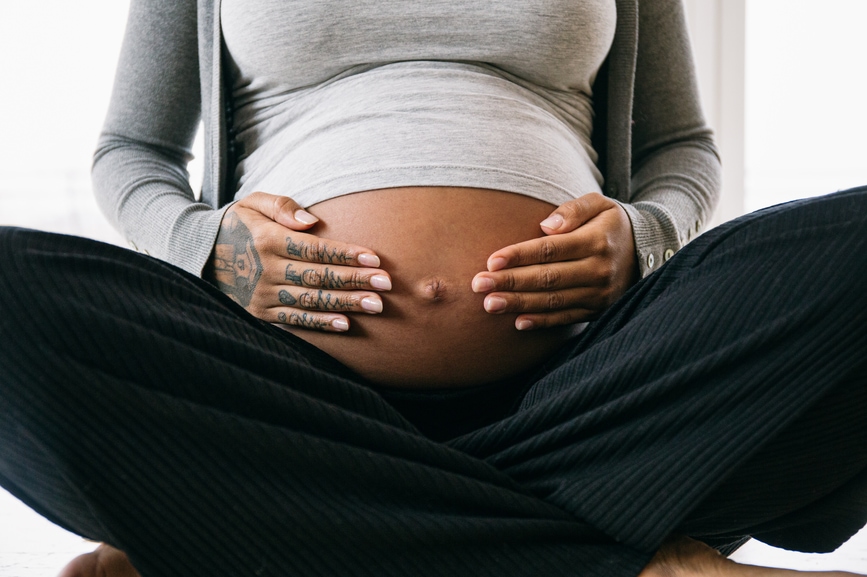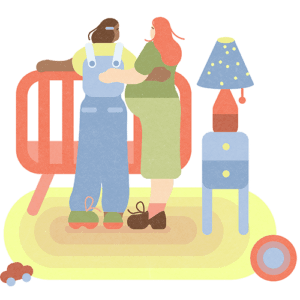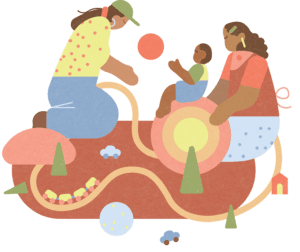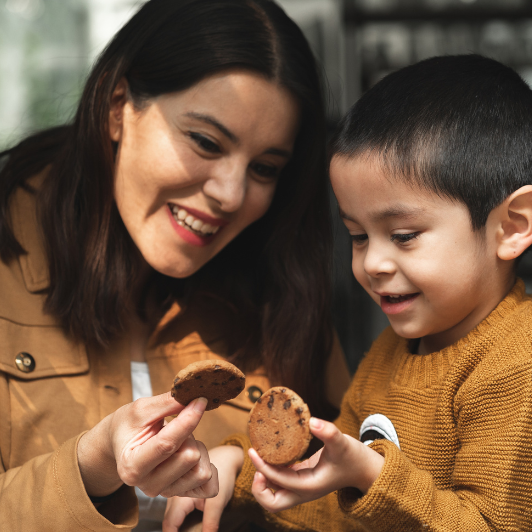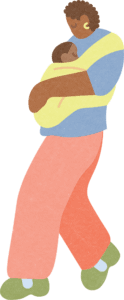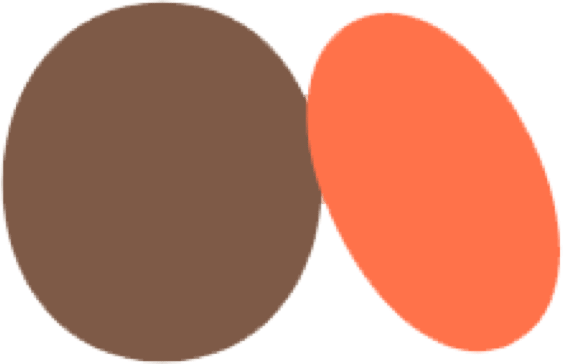Let’s face it, motherhood has its challenges. The stresses of the day-to-day—from the usual things to the unusual, and even the unexpected—can all feel overwhelming and cause a lot of wear-and-tear to our mental health, not to mention our relationship with ourselves and others. At Oona we recognize that transitioning into motherhood can be hard—whether it’s your first time being a mom or your third. That first initial year after your baby is born can bring a lot more than just a lack of sleep. Being a new mom can impact your overall mental well-being, as those who’ve experienced postpartum anxiety (PPA) or postpartum depression (PPD) can attest to.
Aside from the many symptoms that can go along with having postpartum anxiety or depression, there are likely going to be some mood fluctuations after the first two weeks of giving birth, as our hormone levels tend to be a bit wacky for a hot minute.
You may experience:
- Symptoms of anxiety
- Mood swings, grumpiness, and sadness
- Difficulty concentrating
- Appetite changes
- Insomnia
We call these symptoms “baby blues.” After the first two weeks of motherhood, any lingering symptoms warrant some attention. While not everyone who experiences some of the symptoms associated with postpartum depression or anxiety will be given a diagnosis, one in seven new mothers experience symptoms more severe than baby blues. Having some of the following symptoms could mean that you’re suffering from postpartum anxiety, postpartum depression, or both.
Symptoms of Postpartum Depression
Postpartum depression (PPD) is very common. So much so that more research is being done in the U.S., Canada, and Australia to learn more about it and increase treatment options. In Canada, nearly 9% of new moms experience PPD after childbirth. These symptoms must be present beyond the first 2 weeks after childbirth, within 12 months of giving birth (some won’t show up until months later), and include:
- Feeling depressed or sad for a majority of the day, for several weeks to months at a time
- A lack of interest in the things you once enjoyed (hobbies, sex, etc.)
- Foggy mind, inability to focus or make decisions
- Withdrawing from friends and family
- Fatigue that lasts throughout the day
- Changes in eating and sleeping habits (overeating, oversleeping, insomnia, or a lack of appetite)
- Feeling irritable or angry
- Symptoms of anxiety (racing thoughts, constant worrying, panic attacks, etc.)
- A lack of bliss or bonding with your baby
- Thoughts of resentment toward your baby, husband, or anyone who doesn’t have a baby
- Feelings of wanting to hurt your baby
- Suicidal thoughts
- Feeling like a bad mother
- Excessive crying
- Feeling hopeless
Symptoms of Postpartum Anxiety
A new study at the University of British Columbia found that the rates for postpartum anxiety are higher for new mothers than postpartum depression. They found that 17% of new moms were at risk of being diagnosed with postpartum anxiety. While this can oftentimes be misdiagnosed as PPD, the symptoms of postpartum anxiety include:
- Constant worrying
- Feeling like something bad is going to happen
- Irrational fears or imagined threats
- Increased heart rate
- Upset stomach
- Tight chest or throat
- Shallow breathing
- Racing thoughts
- Lack of appetite
- Insomnia
- Irritability
- Muscle tension
- Difficulty concentrating, thinking clearly, recalling information
- Anger or rage
- Thoughts or fears of hurting your baby
- Lack of motherhood bliss
- Nausea, hot flashes, and dizziness
While some of these symptoms sound unbearable, and some even unthinkable, they’re completely normal and terrifying for women experiencing PPD or PPA. The good news is that these conditions are totally treatable, and there’s a variety of treatment options available for suffering new mothers.
Your mental health is important.
Treating Postpartum Depression and Anxiety
Treating postpartum anxiety or depression is different for each woman. Since we’re all individuals, we often experience different sets of symptoms that manifest in each of us as unique as our personalities. So there really is no one-size-fits-all treatment model. Some new moms opt for pairing therapy with medication, but 50% of people who take SSRI antidepressants feel no benefit, and this is usually the first line of defence chosen by doctors to treat both anxiety and depression. There are also a variety of side-effects that go along with taking meds—leaving many women to opt for more holistic options like naturopathic medicine.
Psychotherapy is also a wonderful tool for treating postpartum depression and anxiety. Common methods include cognitive-behavioural therapy (CBT), integrative approaches, and interpersonal therapy. There are also a number of holistic remedies such as vitamins, minerals, herbs, acupuncture, yoga, massage, etc. An integrative approach incorporates a variety of factors into a treatment plan such as nutrition and diet, exercise, social activity, community support, sunlight, sleep patterns, etc.
If you’re interested in learning more about treating postpartum depression or anxiety for you or your loved one in the Toronto or Newmarket area, we’d love to chat with you about our treatment options. Get in touch with us today and take the first step toward your healing and recovery.

